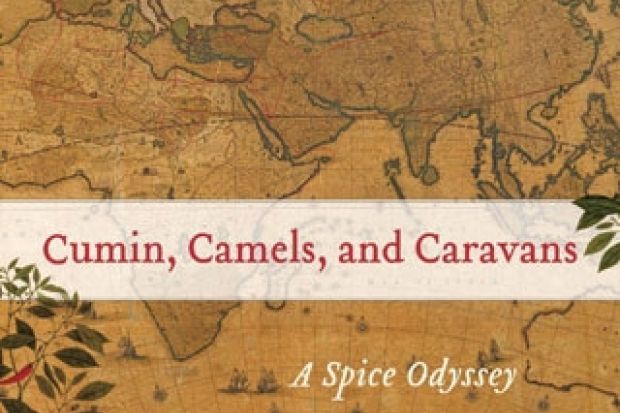The pleasures of food tourism often depend on the guide, today often a television personality, a guidebook or, more recently, a “food sherpa”. In literary tradition, a talented author can lead the reader through time and space, with the promise of exotic spices, interesting people and exotic cultures, and mysteries to be solved. Here, Gary Paul Nabhan, a food scholar and prolific author, is the guide on a journey that also travels through subjects as diverse as botany and archaeology. Even when following well-worn paths, he is never a dull host.
Nabhan’s broadest and most important point is that the globalisation of food is as ancient as human culture, not a recent artefact of industrial capitalism, and while this is not an original point, it is one worth repeating. Nabhan is the real connection between many of the locations, as this book recounts his travels through a sequence of meetings, meals and revelations about historical connections. As Nabhan searches for his ancestors among Jewish and Muslim merchants along a path from China, through the Middle East, Spain and the New World, he stops for exotic meals, which he documents with recipes. He meets interesting people who may be distant kin. He also stops to look though his guidebooks, and these consultations appear throughout the text as condensed botanical, linguistic and culinary biographies of individual spices and flavourings. The narrative also pauses to explore ancient landscapes, religions and cultures, many of which offer lessons about sustainability and the power of faith.
The book’s narrative pathway is complex, which gives texture to a story that otherwise might be simply an engaging diary of friends met and meals shared. The reader can still get lost, and more maps of places ancient and modern would be helpful. At times Nabhan seems torn between telling the story of spices, the history of Jewish and Muslim merchants, and the people he meets along his travels. Are we following Nabhan on his personal quest, the story of religious exiles and merchants in Spain and the New World, or are we on a didactic quest to learn about spices and how to use them? It is easy to get lost as the trail zigzags between speculation and facts, the names of historical and living people, the intimacy of a personal quest and facts about cardamom and cloves.
Combining autobiography with food history and a travel guide is not easy. As Anthony Bourdain’s accounts of tasting yet another piece of grilled mystery meat show, it takes real skill to describe flavours and meals in original ways. Paradoxically, it is hard to keep a reader interested through a succession of unrelentingly interesting people, helpful guides and delicious meals. Nabhan does best when he juxtaposes the violence and imperialism threaded through the histories of spices with the sublime beauty of their flavours. His quest traverses more shaky ground when he mixes religion, culture and kinship in trying to trace his ancestry. Recent scholarship is more critical of the genealogy of historical tribes, cultures and nations, especially in areas as volatile as the Levant.
Ultimately, the caravan in this book is searching not for a market but for a sense of cultural identity in a rootless world, a search that resonates with the descendants of migrants everywhere. Nabhan’s travels lead back to himself, to his home in the southwestern US, where anglophone culture still sits uncomfortably on a native landscape. While the book is ostensibly about spices, what holds it together is a deeper sense of distance from nature and the deep past, a force that continues to impel pilgrims, travellers and even foodies towards distant and exotic places.
Cumin, Camels, and Caravans: A Spice Odyssey
By Gary Paul Nabhan
University of California Press, 332pp, £19.95
ISBN 9780520267206 and 0956957 (e-book)
Published 21 March 2014
Register to continue
Why register?
- Registration is free and only takes a moment
- Once registered, you can read 3 articles a month
- Sign up for our newsletter
Subscribe
Or subscribe for unlimited access to:
- Unlimited access to news, views, insights & reviews
- Digital editions
- Digital access to THE’s university and college rankings analysis
Already registered or a current subscriber?





